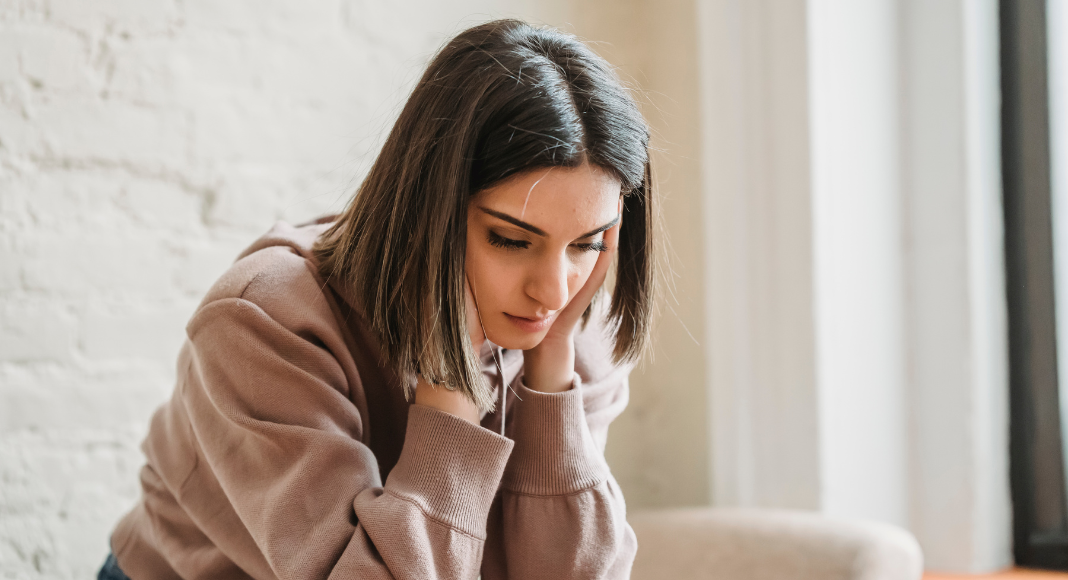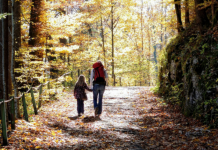
No one can say they’ve gone through life without some sort of traumatic experience. We have each encountered losses and hurts, done intentionally or unintentionally, the result of living among imperfect people in an imperfect world. Our children are, and will, experience them too. What’s a mother to do?
I believe attending to our own healing is the beginning towards mothering well. I believe a bit of transparency about that healing can be beneficial as our children grow. I can’t tell you what you need or what will work for you, or when or how much to share with your littles. But I will share with you four things that have helped me on my journey so far.
1. Talk Therapy
I read a lot of non-fiction. For years I devoured self-help books. Okay, I still like them. But reading about psychology, the mind, sociological patterns, and current trauma healing trends, is not the same as sitting in a room with one person who knows how to listen, ask pointed questions, and sit with you in silence until a response or realization comes. Years ago a close friend recommended her own counselor to me, and I am grateful. That place began a long journey, one that I was late in starting.
During some sessions, I left there buoyant, ready to go run in an open field or slide down a water slide. Some sessions I left there crushed in my spirit, undone by something that’d been uncovered in me. However, both sorts of sessions were important to the process.
2. EMDR
During talk therapy, my counselor mentioned that I was showing signs of PTSD. I was doubtful. The event that could have triggered it was about two decades old. And I was talking about it so well. I was progressing with this thing. She told me about a type of therapy called EMDR and offered to refer me to someone. I declined.
Seven years later, my body was a mess. I was on edge, reacting to any quick sound or movement near me. I remembered what I’d heard in talk therapy. I remembered how she’d told me that even after I’d chosen forgiveness, that the body doesn’t forget.
I texted that original friend and asked if she knew an EMDR therapist in town. She did and I went there. Twice so far, I’ve sat in a comfy chair, donned a pair of headphones, and played a mind-numbing computer game while blinking my eyes on command. Different EMDR therapists use different techniques, but the idea is that the brain processes a past trauma that it became stuck in. I have two strong trauma memories that have lessened/changed as a result of EMDR. I should probably go back. Sometime.
3. Group Therapy
I’m going to tell you that in school I hated group projects. Give me an assignment and let me work it out on my own. Along the same vein, group therapy was the thing I was most resistant to. But last year, after my mom’s death, a childhood friend of mine asked me to be her co-traveler in a 12 Step program for adult children of dysfunctional families. I was just beginning to consider that my family of origin had its dysfunctions. I was still comparing us to other families and rating our dysfunction as mild or minimal. But, this friend was pretty insistent.
I went along and experienced sixteen Saturday mornings in a zoom breakout room with three other ladies who agreed to go through the workbook of steps. In all seriousness, this was one of the most un-fun things I’ve ever done. I don’t think I would’ve completed it if I hadn’t been with a friend. I can say that one thing I learned over and over was what emotions are and how they need to be expressed. My favorite takeaway was this definition of being loved:
LOVED – A sense of feeling valued, understood, and heard. Listened to. Feeling safe with another. Warmth in the heart. Lightness of body. (ACA Fellowship Text, often referred to as “the big red book,” pg. 162)
4. Body Work
You may notice the description of love (and every other emotion described in the above-referenced book) includes both emotional and physical descriptors. As I learned with my own PTSD and my own EMDR therapy, much is held in our very bodies. Last summer I treated myself to massage and enjoyed it more than I expected. I’m sure it had to do with the expertise of the intuitive therapist, but the more I allowed myself to experience, the more benefits I seemed to receive.
I now get a massage monthly and consider it not only self-care but part of my own healing process. It’s a different sort of submission and receiving, but one that I think can be similar to the give and take involved in talk therapy with the right counselor.














